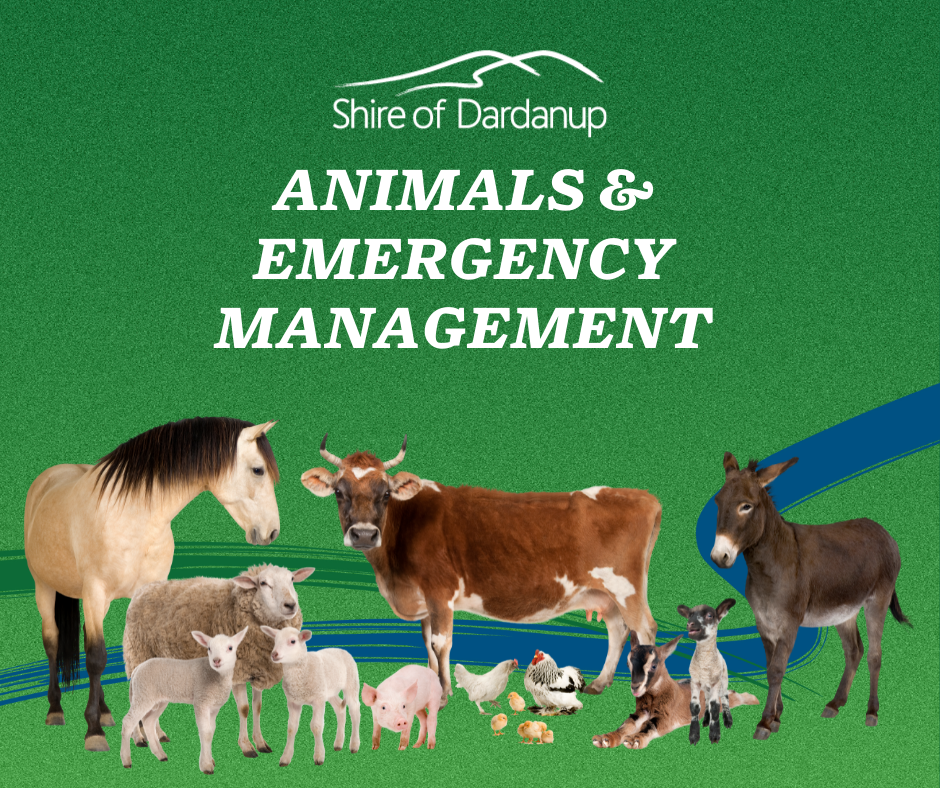Published on Tuesday, 14 December 2021 at 5:40:00 PM
Planning for care and protection of animals during an emergency

Ensuring the welfare of animals is taken into account during planning for emergencies like bushfire has been the focus of a one year, two-stage project undertaken by the Shire of Dardanup with help from a State Government grant.
Under the project, staff were able to review, test, enhance, update and promote Council’s existing Animal Welfare Support Plan plus undertake specialist training on the safe management of animals during emergencies.
Shire of Dardanup CEO André Schönfeldt said emergency management plans traditionally focused on saving human life and property.
“However, we have learned from past disasters in other States that failing to recognise the interdependency relationship between humans and animals can result in significant human welfare impacts,” Mr Schönfeldt said.
“It is acknowledged that pet owners or carer’s ability to address animal welfare issues may be hampered or prevented due to the nature of the emergency.”
The Royal Commission into the 2009 Black Saturday fires in Victoria found that individuals perished as a result of failing to evacuate with their animals and prematurely returning to the fire ground to save their animals.
Council received a total of $22,000 for the project across two grant rounds through the Local Government Animal Welfare in Emergencies Grant Program delivered by the WA Local Government Association (WALGA) in partnership with the Department of Primary Industries and Regional Development (DPIRD).
A revised and updated Animal Welfare Support Plan was adopted by Council in August and details emergency management arrangements related to the welfare and management of animals including domestic pets, horses, livestock and wildlife before, during and after an emergency.
You can view the Animal Welfare Support Plan here..
In addition, the Shire of Dardanup encouraged residents with pets or livestock to include them in plans for emergency preparedness.
The DPIRD website contains a variety of fact sheets and resources to help with this process.
“A short amount of time and thought invested now in how best to care for your animals during an emergency can greatly reduce the risk to safety of not only the animals and their owners but also our emergency responders,” Mr Schönfeldt said.
Back to All News